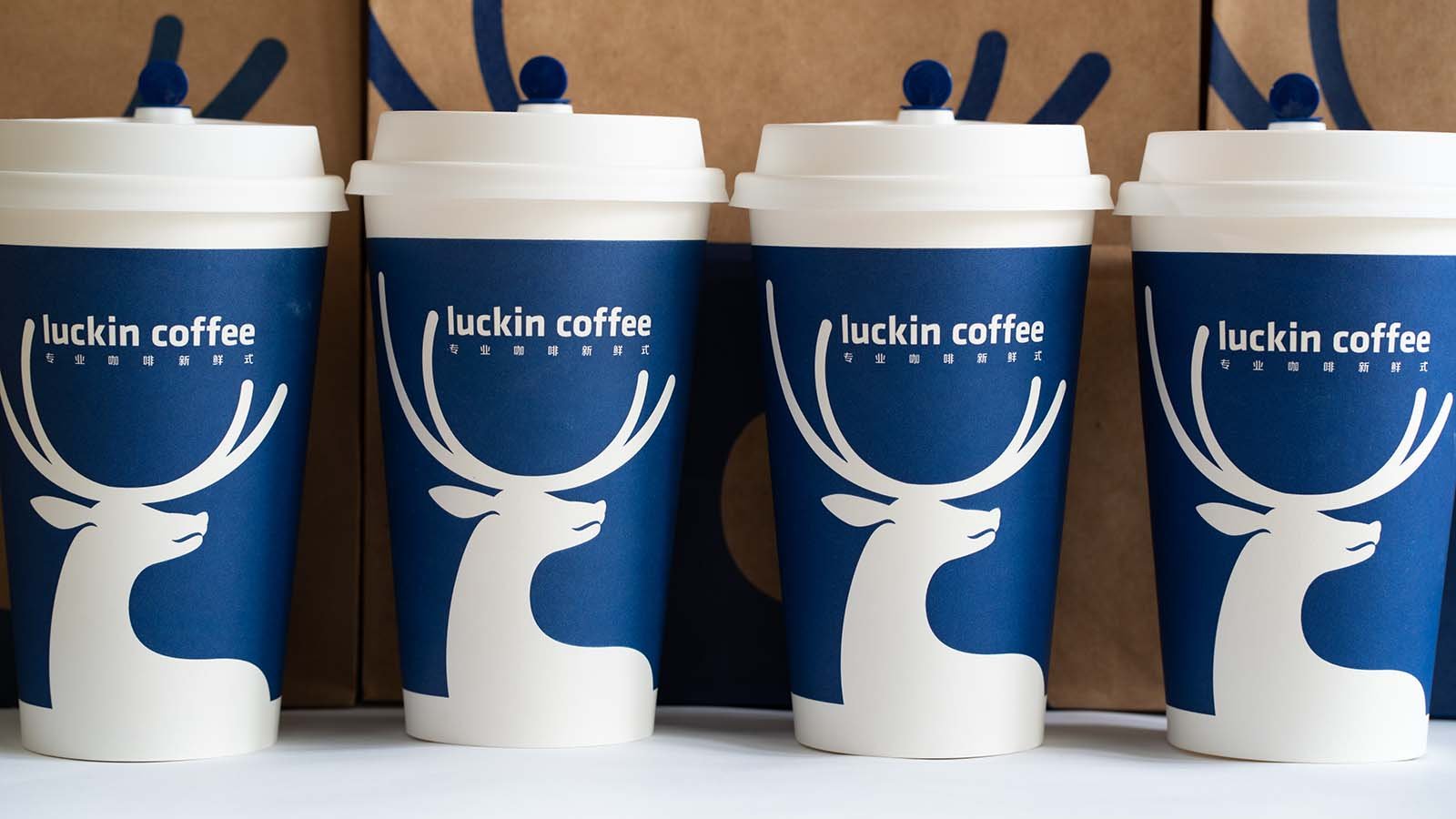Initially, many optimists viewed Luckin Coffee (OTCMKTS:LKNCY) as China’s answer to Starbucks (NASDAQ:SBUX). Certainly, it was a bold move as China is not exactly what you call a coffee-drinking culture. Nevertheless, Luckin stock enjoyed a remarkable performance, particularly when relations between the U.S. and China improved following bitter escalations of their trade war. Then, everything changed.

As you know, the novel coronavirus ravaged China, shuttering its economy as its government went into full lockdown mode. But Luckin didn’t do itself any favors when an ugly accounting scandal was exposed. This was particularly problematic because LKNCY is a growth stock, and growth was what Luckin lied about. Not surprisingly, investors didn’t take too kindly to the company fabricating sales.
Since the Nasdaq exchange delisted Luckin stock, some bold contrarians have speculated that it could be a turnaround play. Personally, I think the “exoticness” of the China play has caused western and non-Chinese investors to see opportunity where it doesn’t exist.
Here’s a thought: the Chinese are first and foremost human beings. As such, they don’t like to be lied to, which is a completely understandable reaction.
Nevertheless, as our own Patrick Sanders pointed out, there is a limited rationale behind the bull case for Luckin stock. In summary, the underlying company’s reconstituted board could take the organization private, then launch an initial public offering in China or Hong Kong for a higher valuation. Also, Luckin’s convertible debt is trading for pennies on the dollar.
Admittedly, the idea of wagering on one of the most despised companies as a contrarian move has a “bad boy” appeal. But given the deteriorating relations between the U.S. and China, I’m not inclined for unnecessary drama.
A Deluge of Ugliness Awaits Luckin Stock
As you’ve undoubtedly heard, the U.S. ordered China’s consulate in Houston, Texas to be closed. According to the New York Times, the Chinese government retaliated, ordering the U.S. to close its consulate in the southwestern city of Chengdu.
It’s the type of back-and-forth accusations that we’ve seen throughout the trade war. What makes Luckin stock optically unsightly is that the coffee shop makes the Chinese spin doctors lose credibility. Still, that’s not why I’m pessimistic about LKNCY.
Rather, this diplomatic row is the last thing that either country needs right now. But the matter may end up hurting the Chinese economy more. Prior to the pandemic, the Wall Street Journal reported last year that China’s slowdown posed challenges to American companies. Further, Chinese consumers began closing their wallets, a practice many weren’t accustomed to during years of China’s economic miracle.
Of course, the coronavirus completely disrupted Chinese consumption. And as an export-driven economy, this new beef with the U.S. will likely be deflationary to the Asian juggernaut.
After all, the trade war made American companies question exposure to China. Now, the Covid-19 pandemic, along with China’s belligerence, has made this question priority number one among major multinationals. Invariably, less international investments will lead to fewer jobs. Thus, there’s every incentive to save money, not spend it.
Also, another WSJ article states that “The unemployment rate among college graduates aged between 20 and 24 climbed to a record high of 19.3% in June.” Essentially, this is Luckin’s target demographic. So, if young, progressive Chinese consumers are hurting, that doesn’t augur well for Luckin stock.
And for every demo, the easiest thing in the world to do is to cut back on extraneous purchases. You can buy coffee for cheaper at the grocery store.
It’s Not Exactly a Bargain
When you think of Chinese-made products, “cheap” is probably the first attribute that comes to mind. We live in a Walmart (NYSE:WMT) world where Chinese sweatshop labor subsidize our relatively extravagant lifestyle.
Therefore, I became curious: how much does it cost to buy a cup of Luckin coffee?
Unfortunately, Luckin’s website was down when I attempted to research this topic. However, a Qz.com article from May 2019 revealed that some drinks range from 24 yuan to 27 yuan (in 2020 dollars, that’s $3.42 to $3.85).
Frankly, I was rather shocked at these price points. The most expensive beverage at my local Starbucks is priced only 36% higher than the 27-yuan Luckin drink. But the average U.S. salary is around $57,000. According to Statista.com, an urban Chinese employee makes on average the equivalent of $11,746. Coincidentally, that’s a 385% differential.
In other words, Luckin sells to an exclusive demographic, which is not suitable for its mass-growth strategy. Add in the geopolitical crisis on top of an economic one and you can see why I don’t care for Luckin stock.
A former senior business analyst for Sony Electronics, Josh Enomoto has helped broker major contracts with Fortune Global 500 companies. Over the past several years, he has delivered unique, critical insights for the investment markets, as well as various other industries including legal, construction management, and healthcare. As of this writing, he did not hold a position in any of the aforementioned securities.
